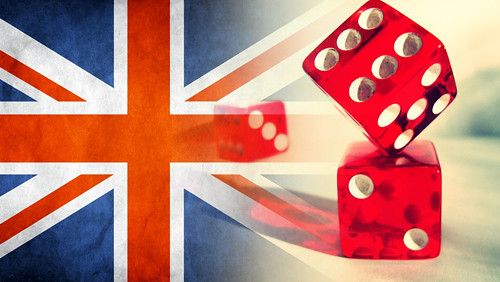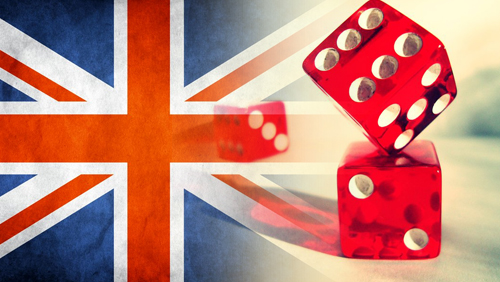Few businesses have emerged from the economic crisis with more verve and vigor than the UK gambling industry. At the beginning of the year the UK gambling industry was sending out numbers that saw an increase in online gambling revenue of more than 80%, when compared to life five years ago.

It seems we may not be able to put food on our tables, or heat our little pinkies during the winter months, but when it comes to the National Lottery, The Grand National and a Saturday afternoon football accumulator then nothing gets in the way of the men and women from good old blighty.
With that in mind here are the top 10 stories of a fun filled 2013 for the gambling companies from the UK.
In no particular order…
1. The Point of Consumption Tax
The new year started with members of the Culture, Media and Sport Select Committee grilling the Remote Gambling Association (RGA) president Clive Hawkswood on the collective gambling firms objections to the proposed Gambling (Licensing and Advertising) Bill that would require all UK-facing operations to own a Gambling Commission-issued license, coupled with a 15% point of consumption (POC) tax by the end of Dec 2014.
It seems the online gambling firms were up in arms over the proposed 15% levy, with William Hills suggesting a 5% tax would be more sensible, Paddy Power 5-8% and even the Gibraltar Betting and Gaming Association (GBGA) threatening legal action should the bill go ahead; action they eventually decided against.
However, when number crunchers like Gambling Data start throwing around figures like £386m in additional taxation for the government, then you can bet your bottom dollar, all of the noises coming from Hawkswood et al were falling on the deafest of ears.
At the time of writing the bill has passed it’s third reading at the House of Commons and is now destined for the House of Lords for more streams of wasted diatribe before the eventual implementation, as planned, at the end of Dec 2014.
2. Bet365 Top the Rich List
One UK based gambling firm that didn’t abscond to a tax haven after the implementation of the Gambling Act 2005 was Bet365; and the Coates family topped the annual gamblers rich list in the Sunday Times for the second consecutive year when it was published in May.
Peter, Denise and John Coates were worth an estimated £925m, proving to the rest that you can build a sustainable business with a 15% tax slapped on your operating costs.
“But they could have earned so much more,” I hear people cry.
The Done brothers Fred and Peter were second with an estimated fortune of £850m, and they spent 2013 investing that money in non-gambling enterprises with Fred opening his ‘Road King’ truck stops business, and brother Peter investing over £3.9m in a sickness and absence management app.
3. CVC Capital-Betfair Failed Takeover Bid
It’s been a year of change for Betfair that at one point saw them come under the intense scrutiny of the private equity group CVC Capital Partners.
CVC teamed up with the Richard Koch and Antony Ball to submit a £912m offer that was duly turned down by the Betfair board. Undeterred the team went back to the drawing board before coming up with an improved offer of £985m.
“The board concluded that none of the proposals represented adequate value or acceptable execution risk.” Said the Betfair Chairman Gerald Corbett.
After the dust had settled on the dead deal, Betfair continued to hammer the hell out of their costs, acquired Blue Square Bet and opened a fixed odds betting option for their punters to run alongside their exchange offering.
CVC Capital turned their attention to the payment processors Skrill where they acquired a 75% stake in a reported €600m deal.
4. The Rank Group Became the Largest Casino Chain in the UK
It was an important year for the Rank Group as 15-months of negotiations to purchase a number of land based casinos from Gala Coral finally came to an end in May.
Interference from the UK competition watchdogs meant that the deal had to be revised from the original bid – to obtain 23 brick and mortar Gala Casinos and three non-operating licenses in a £205m deal – to 19 brick and mortar casinos in a deal worth £179m.
Hands were shook, pieces of paper exchanged hands and 15-months of protracted discussion was at an end.
5. Fixed Odds Betting Terminals Hysteria
If the tabloid press was used as a barometer of the truth, then the residents of the UK would be safer sharing a cup of tea with a leper than in the company of a Fixed Odds Betting Terminal (FOBT).
The machines that have since been dubbed ‘the crack cocaine’ of gambling have helped the British Bookmaker become partly responsible for £2.3bn of the UK’s gross domestic product (GDP), and the 38,800 jobs that helped create it; but that hasn’t stopped the anti-gambling factions screaming bloody murder over what they believe to be the most serious of ills in UK society.
A 20% Machine Games Duty was brought in to try and appease the pitchfork carriers, but that didn’t work, and so attention turned to maximum wagers and maximum prizes in the hope that a reduction or both/either would make them less fanciful.
Then came the revelations from reports in The Guardian that one of the reasons the machines were doing so well was because drug dealers were using them to launder money.
With over 35,000 FOBTs on our High Streets, and one London constituency alone seeing a quarter of a million being staked, then it’s safe to say this is one story that will continue to run well into 2014 and beyond.
6. 888 Holdings Turn to America
2013 was the year that saw the American iGaming business finally start to show the first green shoots of life after years of blow and bluster.
Ultimate Gaming became the first regulated, real money online poker room to open for business in the United States after Nevada became the first state to create a regulated environment for iGaming to prosper.
Caesars Interactive Entertainment (CIE) were the next to follow suit when their poker brand, The World Series of Poker (WSOP.com), opened up for business, with an online poker offering fired by 888 software.
888 Holdings also have a deal to offer an iGaming solution in partnership with the Treasure Island casino, and formed an alliance with Avenue Capital Group named the All American Poker Network (AAPM), with Steve Wynn signing up to be one of their first customers.
Delaware were the smallest of the three states to forge onwards with an iGaming product and once again it was 888 Holdings in the thick of the action. Scientific Games (SGMS) becoming a partner as the pair won the bidding war set forth by the Delaware Lottery for the right to provide the technical backbone to its planned online offering.
Last, but by no means least, the largest state of the three, New Jersey, has also started its iGaming project, and once again 888 Holdings is involved in the mix, after its 888 Atlantic Ltd and AAPN New Jersey LLC entities were granted transactional waivers by the New Jersey Division of Gaming Enforcement to act as online casino gaming services providers to the properties owned by Caesars.
7. William Hill Acquire Tom Waterhouse
There are few places on the earth that have more gamblers per capita than Australia, so it should come as no surprise that the best of British bookmakers have spent the past 12-months getting a foothold in that market.
The highest profile move was William Hill’s acquisition of the Australian online bookmaker Tom Waterhouse, in a deal that could be potentially worth as much as A$110m.
As part of the deal young Waterhouse will stay on as managing director of TomWaterhouse.com and also join the William Hill Australia’s management team.
The deal would be the third of its kind after Hills also acquired the Australian outfits Sportingbet and Centrebet. PaddyPower, Bet365 and Betfair all have business interests in the Australian market.
8. William Hill Pay Off Playtech
One of the biggest UK deals of the year saw William Hill agree to pay £425m to buy out the 29% stake that Playtech had in the William Hill Online (WHO) joint venture.
The price tag represented 10 times WHO’s underlying earnings, and is a lot more than Hills would have wanted to have paid in order to get rid of their troublesome partner.
For Playtech the deal was a dream after their initial stake of £150m, made just four years ago, had nearly tripled, during a relationship that was tempestuous at best.
9. Camelot Increase The Price of UK Lottery Tickets
For the first time in nearly 20-years Camelot increased the price of a UK National Lottery ticket from £1 to £2 in a move that was promoted as ‘delivering bigger jackpots’ and ‘raising more money for good causes.’
The increase in costs on the punters resulted in a Saturday jackpot rise from £4m to £5m, the lowest rung prize increased from £10 to £25, and a special ‘raffle’ was added to the ticket introducing 50 prizes of £20,000 for each draw.
On the ‘good causes’ front Camelot decided to donate 56p from each ticket sale as opposed to 28p when the ticket was just £1.
The tabloid’s reaction to the price hike was to lead with headlines claiming that it was a ‘tax on the poor’, and to claim that thousands of people would protest by refusing to purchase their tickets.
‘Good causes – my arse,’ as Jim Royle would say.
10. Ladbrokes Under Fire
Whilst most UK Bookmakers enjoyed a fruitful 2013, the same cannot be said for Ladbrokes.
When CEO Richard Glynn said that Lads FY 2013 forecast had changed from a £27.5m profit to a £10-14m one, the shouts of ‘off with his head’ were ringing out from Lands End to John O’Groats.
“A lack of competitiveness in sports book, lower margins and greater disruptive impact than expected,’ were the reasons cited for the apparent loss of between £13.5−17.5m in spreadsheet money.
Ladbrokes hooked up with Playtech in a five-year licensing deal that would see them take over from Microgaming, and it’s believed that this divorce is one of the major reasons that all is not well inside Lads Towers.
All of this means that profits have dipped from £63m to below £14m ever since Glynn took over at the helm in April 2010, suggesting that the pressure is well and truly on.
Now it’s turn to have your say. What do you think were the biggest gambling stories in the UK during 2013?
